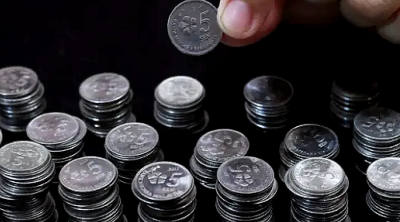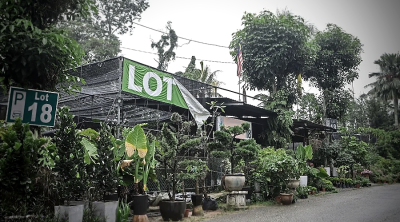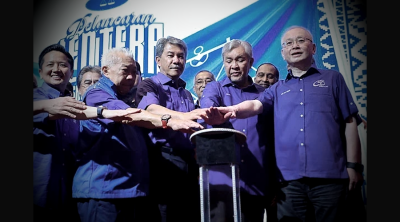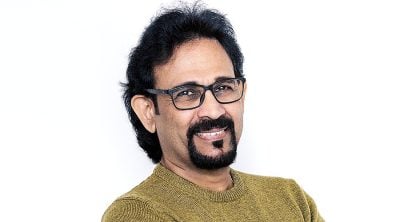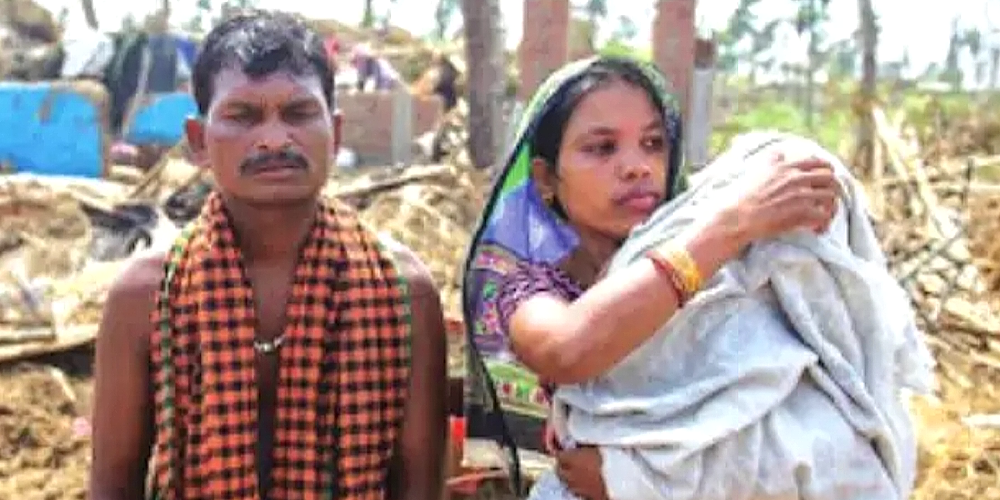
Last year was certainly the hottest summer ever, according to the Scientific American. This summer is not yet over, but it certainly feels like it will break last year’s record.
My air conditioning bill has gone up because the nights are hotter. Malaysia is having floods and landslides. India has a record heat wave with a stunning temperature of 52.3 degrees Celsius measured in the outskirts of New Delhi in May.
Flying into Ulaanbaatar, capital of Mongolia this week, amidst the blue skies and lush green grasslands, I was made aware that the land-locked country suffered a 2.25 degrees Celsius increase in average temperature in the last 80 years, double the global average.
Moreover, the number of natural disasters per year had risen from 2,400 per year during the period 1996- 2010 to 4,300 per year since 2010, a 1.8 fold increase.
Climate warming is affecting Mongolia with the decline in precipitation causing drought, desertification and soil erosion or degradation.
For a country of 3.3 million that accounted cumulatively for only 0.04 per cent of global carbon emission in 2022, it is suffering from global warming through external, rather than internal factors.
The severe current dzud or extreme cold and heat is estimated to have killed 5.2 million heads of livestock or 8.1 per cent of the total livestock in the country.
You would have thought there would be some form of global insurance or aid for small countries that suffer from global warming through no fault of their own.
The answer is that the multilateral agencies such as the World Bank or Asian Development Bank are trying their best, but according to the NGO International Budget Partnership, the constraints of Mongolia in meeting its UN Sustainable Development Goals (SDGs) is purely due to its budgetary factors.
In 2022, 27.1 per cent of Mongolia’s population is living below the poverty line (ADB data). The country needs external aid to deal with climate change beyond its own control.
The United Nations recently estimated that by 2023, only 16 per cent of its SDGs to deal with global poverty and climate change by 2030 had been met. The funding gap for achieving SDGs has been estimated at between $2.5 trillion to $4 trillion annually.
Global official development aid (ODA) to developing countries was only $211 billion in 2022.
The rich countries have been promising to give $100 billion for the developing countries to help them achieve NetZero, but so far that has not yet been fully pledged.
The Mongolian government launched a Billion Tree Fund in 2022 to try to increase its forest coverage, which was only 7 per cent in 2018, compared with 72.8 per cent of pasture land.
Reforestation would help to slow desertification, capture carbon, retain water and conserve biodiversity.
Climate warming is hitting different countries differently, with the poorer populations taking the brunt of natural disasters.
Since the richer countries were responsible historically for most of the carbon emission, you would have thought that they would be willing to fund the path to NetZero. Not bloody likely.
I was with a crowd of central bankers who insisted that they should not be directly involved in funding climate action, because it was not in their mandate. They feared that moving out of their mandate to deliver price stability, financial stability and or employment would hurt their independence.
Few were willing to accept that central banks may be independent within government, but they are not independent of government or the people.
As the Austrian-Hungarian philosopher Karl Polanyi argued against the free market ideologue Hayek, the market is not independent of the economy, which is embedded in society, and society is embedded in the planet.
Since advanced country G10 central bankers expanded their balance sheets by a remarkable $11 trillion during the pandemic (Feb 2020-May 2021), why can’t they provide some funding for climate action? The central banks will not enter into direct funding of global climate action, because they feel that is the remit of their national governments.
National governments can’t agree on fighting global climate change due to geopolitical considerations.
The good news is that the governments agreed to increase the Special Drawing Rights (liability issued by the International Monetary Fund which increases the foreign exchange reserves of the member central banks) by $650 billion in 2021 as part of the effort to fight the pandemic economic shock.
Since SDRs are distributed to countries in proportion to their quota shares in the IMF, about US$275 billion was allocated to the emerging and developing countries (EMDEs), of which low-income countries will receive about US$21 billion.
These are totally inadequate to the funding needed to deal with climate warming. It would have been much more effective if the surplus countries (namely rich or larger shareholders of the IMF) would be willing to donate their SDRs to increase the capital of the Multilateral Development Banks (MDBs), like Asian Development Bank or World Bank.
By increasing the MDB capital and allowing more leverage (increase debt to equity ratio) to say 8 (like a commercial bank), $650 billion in new capital would yield $5.2 trillion funding to EMDEs to deal with SDG goals in alleviating poverty and tackling NetZero. That would be serious money.
With such resources deployed, there would be some hope that we would avoid global recession and make some serious effort to cut down carbon emissions and deploy more alternative energies.
Since the majority shareholders of the IMF are mainly in North America and Europe, the chances of any agreement to be so generous or altruistic are low.
They are fully preoccupied with their dysfunctional politics and protectionist moods. Migration, which is one of their most contentious issues, is largely driven by the poor from the global South seeking cooler climates and jobs in the richer North.
Helping these countries increase their local jobs and help fight desertification and regenerating soil, food and water resources, would slow down migration and make the world a more peaceful place to live in.
The default solution to current disasters is to print more money. When the weather gets hot, the rich pay more to stay cool, but the poor die. Who said the world is fair?
ADVERTISEMENT
ADVERTISEMENT










